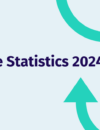
It’s been a good time for women in sport. We celebrated the England Lionesses as they scored their way to the World Cup semi-finals; looked on in awe as 15 year old Coco Gauff beat her idol Venus Williams at Wimbledon; and cheered on the England netball team as they once again made it to the semi-finals of this year’s World Cup.
Yet there’s one goal that women in sport are yet to score: gender equality.
The England women’s football team captain Steph Houghton reportedly earns £65,000 a year; her male equivalent, Harry Kane, earns £211,000 per week.
Tennis legend Serena Williams is estimated to be worth (an admittedly vast) $180 million; Roger Federer is said to be worth $450m.
But it’s not all bad news. In 2007, Wimbledon tennis championships announced its decision to award the winners of both the men’s and women’s singles £2.35m each. Earlier this year, a record-breaking number of UK viewers tuned in for the Lionesses’ game against Cameroon. In the US, 22% more people watched the women’s world cup than men’s.
Progress is being made – we must all push to keep it going and build momentum.
The standard argument is that women in sport are paid less than men because they generate less revenue. That’s true – but this is the result of how women’s sports are marketed, by brands, corporate sponsors, and even ourselves (among many others).
Look at the playgrounds of your local school. Chances are you’ll see boys kick about a football while girls skip or play hopscotch (England footballer Lucy Bronze was told she had to stop playing with her local football team at the age of 11 because she was a girl). In secondary schools, teenage girls and boys are often separated for physical education, so the former can play cricket, football and rugby while the latter do gymnastics, netball and hockey.
Then there’s the gender stereotypes rooted in our language. Mention the words ‘World Cup’ and we immediately assume we’re talking about the men’s, unconsciously implying that the women’s version is beyond the norm. In a truly equal world, we’d refer to the ‘men’s World Cup’, just as we refer to the ‘women’s’. And, of course, there’s the old-school ‘like a girl’ insult. Thankfully, this is gradually being called out thanks to brilliant campaigns like Sport England’s This Girl Can – highlighting the power of raising awareness to challenge perceptions of women in sport.
Ultimately, we must speak up. Changing the gender imbalance – whether on a football pitch, a tennis court or anywhere else – needs us all. Voice your protests on social media to gender-bias brands; sign relevant petitions (or even start your own); contact your local MP. Writing to a politician to suggest, for example, that all pupils play football in PE may seem like a minor action, but it may well contribute to a tidal wave of change.
By changing our perceptions of women in sport, we challenge brands, sponsors and all those involved to reassess their approach. This, in turn, will feed into how society more generally views sportswomen, creating a virtuous circle where they could one day be celebrated (and paid) just as much as their male counterparts.
Just as Serena Williams overcame the odds to become one of the world’s greatest tennis players, we must believe in our ability to conquer gender inequality, in the sports arena and beyond.
https://www.instagram.com/p/BzYp53yhpoe/?igshid=xohjypxj3lhp





